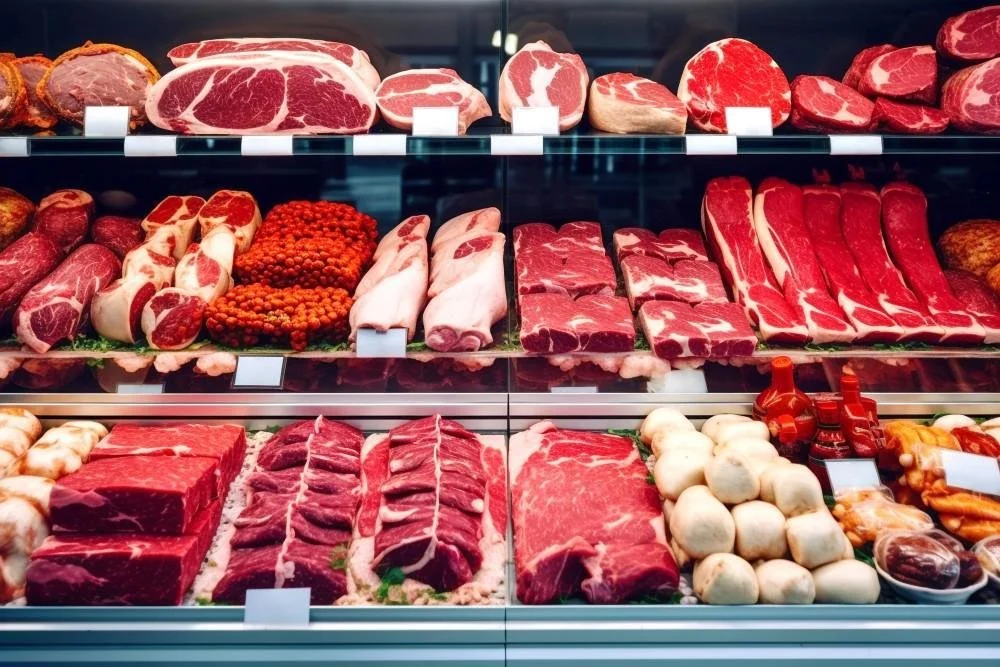Unraveling the Link Between Red Meat, CVD & Diabetes
Diet plays a crucial role in our overall health, and numerous studies have investigated the relationship between various food groups and the risk of developing chronic diseases. In a groundbreaking new study, conducted by the American College of Cardiology (ACC), researchers have explored the effects of red meat consumption on two prevalent health concerns: cardiovascular disease (CVD) and diabetes. The findings of this study shed light on the potential risks associated with high red meat intake, prompting us to reconsider our dietary choices. Let's dive into the details and understand the implications.
The Study:
The ACC study, published in a renowned medical journal, involved a large-scale analysis of data from several cohort studies and randomized controlled trials. The researchers focused specifically on the consumption of red meat, including processed and unprocessed varieties, and its association with the development of cardiovascular disease and diabetes. The analysis took into account various factors such as age, gender, lifestyle, and other dietary components.
Red Meat and Cardiovascular Disease:
Cardiovascular disease, which includes conditions such as heart attacks and strokes, remains a leading cause of morbidity and mortality worldwide. The ACC study provided compelling evidence linking excessive red meat consumption with an increased risk of developing cardiovascular disease. Here are key findings:
1. High Saturated Fat Content:
Red meat, especially processed and fatty cuts, is rich in saturated fat. Excessive intake of saturated fats has long been associated with the development of atherosclerosis, a condition characterized by the build-up of plaque in the arteries. This plaque narrows the arteries, leading to reduced blood flow and increasing the risk of heart disease and stroke.
2. Heme Iron and Cardiovascular Risk:
Red meat is a significant source of heme iron, which is readily absorbed by the body. High levels of heme iron have been linked to oxidative stress and the production of harmful compounds that promote inflammation, endothelial dysfunction, and the formation of blood clots. These factors contribute to the development and progression of cardiovascular disease.
3. Sodium and Blood Pressure:
Processed red meats, such as sausages and deli meats, often contain high levels of sodium. Excessive sodium intake can lead to increased blood pressure, a major risk factor for cardiovascular disease. The study highlighted the importance of reducing processed red meat consumption to mitigate this risk.
Red Meat and Diabetes:
Diabetes, particularly type 2 diabetes, is a metabolic disorder characterized by impaired insulin function and elevated blood sugar levels. The ACC study also shed light on the association between red meat consumption and diabetes. Here's what the research revealed:
1. Insulin Resistance:
High consumption of red meat, especially processed varieties, has been linked to an increased risk of insulin resistance. Insulin resistance occurs when the body's cells become less responsive to the hormone insulin, leading to elevated blood sugar levels and a higher risk of developing diabetes.
2. Advanced Glycation End Products (AGEs):
Cooking red meat at high temperatures or through certain methods (grilling, frying) can result in the formation of advanced glycation end products (AGEs). These compounds have been associated with increased inflammation, oxidative stress, and insulin resistance, all of which contribute to the development and progression of diabetes.
3. Obesity and Metabolic Syndrome:
Frequent consumption of red meat has been linked to weight gain and an increased risk of obesity. Obesity is a significant risk factor for type 2 diabetes, as it promotes insulin resistance and disrupts metabolic processes. The study highlighted the importance of choosing lean protein sources and adopting a well-rounded diet to mitigate these risks.
The findings of the ACC study emphasize the need to reconsider our dietary habits, particularly when it comes to red meat consumption. High intake of red meat, especially processed and fatty varieties, has been linked to an increased risk of cardiovascular disease and diabetes. To protect our long-term health, it is essential to opt for lean protein sources, such as poultry, fish, legumes, and plant-based alternatives.
While red meat can be a part of a balanced diet, moderation is key. Reducing the frequency and portion sizes of red meat consumption can help minimize the associated health risks. Additionally, incorporating a variety of nutrient-dense foods, including whole grains, fruits, vegetables, and healthy fats, can provide numerous health benefits and help reduce the risk of chronic diseases.
As individuals, we have the power to make informed dietary choices that prioritize our health and well-being. By considering the findings of studies like the one conducted by the ACC, we can take proactive steps towards maintaining a balanced and heart-healthy diet, ultimately reducing the risk of cardiovascular disease and diabetes.

